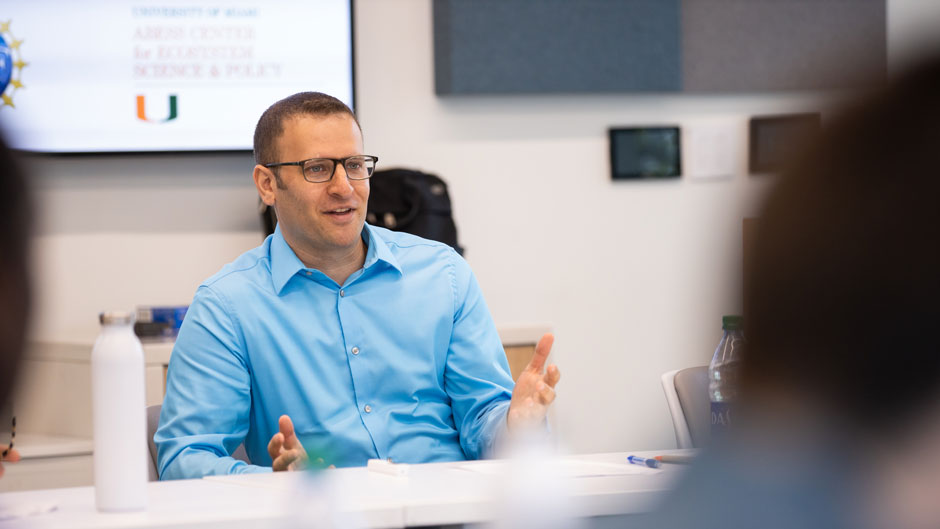Most of the time, when people migrate, they do it for the chance to improve their economic opportunities, research indicates.
But many of the struggles that prompt people to pack up their home and leave can be traced to one common denominator: trouble getting clean, safe, affordable water, said Justin Stoler, associate professor of geography and public health sciences at the University of Miami.
Stoler explained his theory to a group of experts in global water insecurity Thursday, as he opened the workshop Connecting the Dots between Climate Change, Water Insecurity, and Migration, to explore how water insecurity—a person’s inability to access adequate, reliable, and safe water—shapes climate migration.
“Nearly every form of economic hardship traces back to water, and this contributes to people all over the world contemplating migrating,” said Stoler, who has been studying water insecurity and public health for the past decade. “But this is not my opinion; we have related data.”
He then shared information, collected by the Household Water Insecurity Experiences (HWISE) Research Coordination Network, where Stoler is an executive committee member. Figures gathered from 2017 to 2018 revealed that 53 percent of people surveyed from sites in 25 low-income countries—including Brazil, Mexico, Colombia, Ghana, Nigeria, India, and Indonesia—are considering moving because of the difficult water situation.
However, Stoler argued, nations can take actions to stem the outflow of people by improving water distribution systems, along with other measures. But there is little research on this process.
“Today’s geopolitics are complicated by the rise of many populist governments with anti-immigration rhetoric and policies. But what if water, sanitation, and hygiene (WASH) interventions could also be a way to ease pressure on migration?” Stoler asked the audience. “Looking at migration might be a useful way to gauge the success of these interventions, but these research communities—which span the social sciences, global public health, and engineering—have not traditionally considered such holistic approaches.”
Not to mention adding in the effects of climate change.
“Climate change is exacerbating water insecurity, but how does that interact with migration and people’s everyday decision-making processes?’’ Stoler asked. “We do not know much about how climate change is shaping year-round household migration decisions that are unrelated to extreme weather events like droughts, floods, or storms.”
The meeting came on the heels of the HWISE releasing a scale last fall to help researchers measure the water insecurity experiences of households in middle- and low-income nations. The scale was the product of years of research from HWISE executive committee members Sera Young, an anthropology professor at Northwestern University; Wendy Jepson, a geography professor at Texas A&M University; Amber Wutich, an anthropology professor and the director of the Center for Global Health at Arizona State University; and Stoler.
“The scale measures different dimensions of how accessible water is because we know that this supports a person’s well-being,” said Jepson, who participated in the workshop last week. “We are also finding that a person’s psychosocial distress is correlated with water insecurity.”
The two-day gathering last week attracted 18 academics specializing in climate change, water insecurity, and/or migration from across the hemisphere. Organized by Stoler via the HWISE Network, the workshop was sponsored by the National Science Foundation, as well as the Abess Center for Ecosystem Science and Policy, where Stoler is a faculty scholar. Stoler said that he hopes that he was able to spark a discussion between researchers that will lead to future research collaborations.

